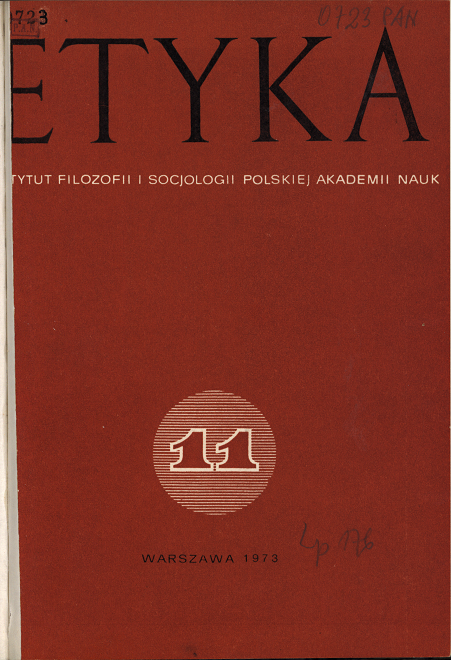Miejsce wiedzy empirycznej w etyce
Abstract
Vast transformations in the conditions of human life and the growth of scientific knowledge call for large-scale reconstruction in morality. This is the historical context for the contemporary problem of the relation between empirical knowledge and ethics. The present paper examines the metaethical aspects of this problem. It is argued that the sharp isolation of ethics from empirical science, representing a philosophical convergence of Kantian, phenomenological and positivist theses, should be seen as a distinctive intellectual program in the 20th century ethics and not as an established theory; that this program has by now had its trial and failed, both on the conceptual and the empirical side; that the program rests on a psychology now abandoned in the progress of science. It is suggested that an opposing integrative program which relates empirical knowledge and ethics is more likely to succeed, that it is better grounded psychologically and stands a better chance of a helping deal with the practical problems of morality in the contemporary world. These several theses are explored in outline, with some indication of the way conceptual frameworks in ethics are to be justified in the long run.Downloads
Published
Issue
Section
License
Works published in ETYKA are available under the Creative Commons Attribution No Derivatives 4.0 International Licence (CC BY-ND), which entails acknowledgement of authorship without derivative works. Under this licence, Authors keep their copyrights and agree that their works can be used again legally for any purpose, including commercial ones, except for the creation of derivative works, without the need to obtain previous consent of the Author or publisher. The articles can be downloaded, printed, copied and disseminated; under the condition that the authorship is indicated accordingly, together with the place of original publication. The Authors preserve their copyrights to the above-mentioned works without any limitation whatsoever.



